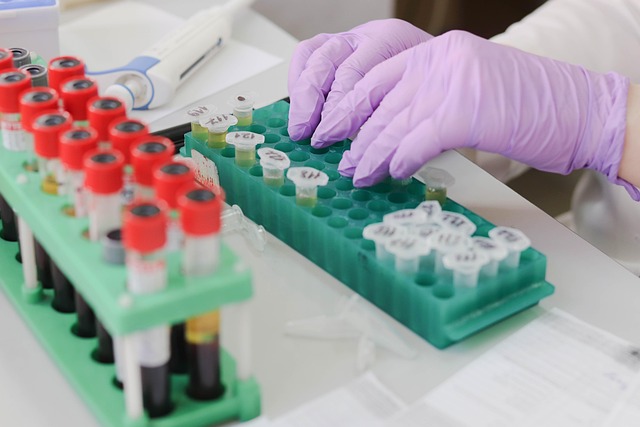Ferritin, known as 'iron keeper', regulates iron levels in the body. Understanding ferritin levels through a Male Hormone Blood Test UK is crucial for diagnosing iron deficiency in men, which can cause fatigue, weakness, and cognitive issues. Standard blood tests may not be conclusive; thus, healthcare professionals must consider iron deficiency in men with chronic fatigue, reduced exercise tolerance, and cognitive issues, alongside evaluating eating habits, gut health, and bleeding disorders. Ferritin levels below 20 mcg/L (for women) or 30 mcg/L (for men) indicate deficiency. Combining ferritin results with symptoms and medical history aids in accurate diagnoses.
“Discover how ferritin level testing can pinpoint Iron Deficiency, a common yet often overlooked health concern, especially among men. This comprehensive guide explores the role of ferritin—the body’s iron storage protein—in diagnosing this deficiency. We delve into when to suspect a deficiency in males and how blood tests, particularly focusing on male hormone profiles in the UK, can provide crucial insights. Understanding these mechanisms is essential for early detection and effective treatment.”
- Understanding Ferritin: The Iron Storage Protein
- When to Suspect Iron Deficiency in Men
- Interpreting Ferritin Levels for Diagnosis
Understanding Ferritin: The Iron Storage Protein

Ferritin is a protein that plays a crucial role in storing and regulating iron levels within our bodies. Often referred to as the ‘iron keeper’, ferritin acts like a protective shield, safeguarding excess iron and releasing it when needed. This process is particularly vital for maintaining optimal health, especially in organs with high iron requirements, such as the liver and brain.
In the context of male hormone blood tests UK, understanding ferritin levels is essential. Iron deficiency, a common condition worldwide, can significantly impact overall well-being. Ferritin level testing is a key tool in diagnosing iron deficiency, as low ferritin values indicate reduced iron stores, which may lead to fatigue, weakness, and even cognitive issues. This simple blood test provides valuable insights into an individual’s iron status, helping healthcare professionals make informed decisions for effective treatment and management.
When to Suspect Iron Deficiency in Men

Iron deficiency is a common nutritional disorder, but it can often be overlooked in men due to gender biases in symptom presentation. Unlike women, who may experience obvious signs like fatigue and pale skin, men typically exhibit more subtle symptoms. This makes it crucial for healthcare professionals to consider iron deficiency in male patients presenting with chronic fatigue, reduced exercise tolerance, and cognitive issues.
Suspecting iron deficiency in men often involves assessing factors beyond typical lab markers. A Male Hormone Blood Test UK might not always reveal conclusive results; thus, medical history taking should focus on eating habits, gut health, and any bleeding disorders or recent surgeries. Given the diverse range of symptoms associated with low ferritin levels, a thorough evaluation is essential to ensure accurate diagnosis and prompt treatment initiation.
Interpreting Ferritin Levels for Diagnosis

When interpreting ferritin levels for iron deficiency diagnosis, it’s crucial to understand that ferritin is a protein that stores and releases iron in the body. Levels below 20 micrograms per litre (mcg/L) are generally considered indicative of low ferritin, which can point towards iron deficiency. In men, where typical ferritin levels tend to be higher than in women, values consistently below 30 mcg/L may suggest a potential issue.
In the UK, male hormone blood tests often include ferritin measurements as part of a comprehensive health check. Healthcare professionals use these results alongside other clinical data, such as symptoms, medical history, and other laboratory findings, to confirm iron deficiency diagnosis. It’s important to consult with a healthcare provider for accurate interpretation and guidance based on individual circumstances.
Ferritin level testing is a crucial tool in diagnosing iron deficiency, particularly in men. By understanding ferritin as the body’s iron storage protein and recognising the signs of potential deficiency, individuals can take proactive steps to maintain optimal health. A simple male hormone blood test UK clinics offer can provide valuable insights, making it easier to identify and address iron deficiency early on. This ensures a healthier, more energised lifestyle for men at risk.
